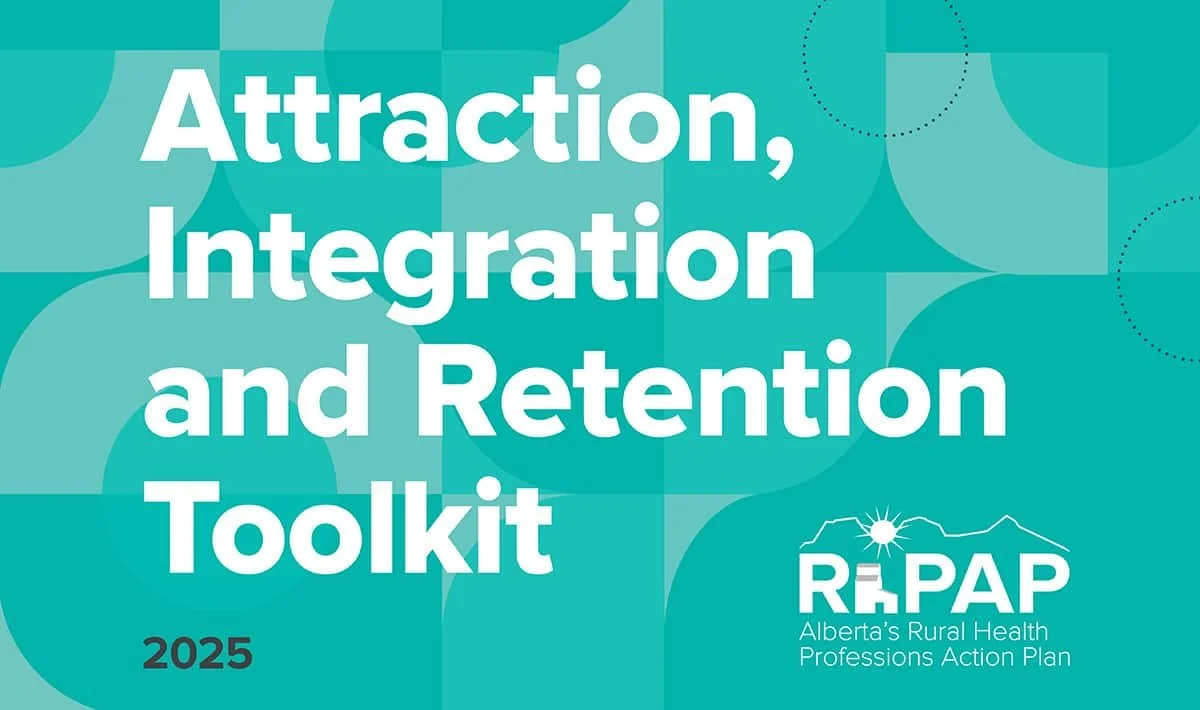AIR Toolkit empowers rural communities
Attraction, Integration, and Retention Toolkit empowers rural communities to strengthen healthcare workforce
RhPAP is proud to launch the AIR Toolkit—a practical, community-informed resource designed to help rural Alberta communities attract, integrate, and retain healthcare professionals. The toolkit supports efforts to keep healthcare close to home by strengthening local health workforces and attraction and retention committees. Developed in consultation with rural communities, the guide highlights tangible strategies and best practices to form, sustain, and grow a resilient healthcare workforce.
The AIR Toolkit is a free, publicly accessible resource made up of seven modular sections that can be used individually or together. Detailed sections include foundations of rural healthcare in Alberta, guidance on setting up an AIR committee, and practical strategies for attracting, integrating, and retaining rural health professionals. This resource is designed to support rural community members, volunteers, municipal leaders, and health employers engaged in healthcare attraction and retention.
“Rural communities are at the heart of Alberta, and ensuring they have access to strong, stable healthcare is essential,” says Shanda Berns, RhPAP Senior Manager of Community Development & Engagement. “The AIR Toolkit reflects what we’ve heard directly from rural leaders and volunteers—it’s a resource built by communities, for communities. By equipping local champions with practical tools and proven strategies, we’re helping them take an active role in attracting, integrating, and retaining the health professionals they need to thrive.”
In rural Alberta, health facility closures and workforce turnover are ongoing challenges, often tied to the limited number of healthcare professionals who choose to live and work outside urban centres. According to the Government of Alberta’s Rural Health Strategy (2024), while over 18 per cent of Albertans live in rural and remote communities, nearly 900,000 people, fewer than 7 per cent of family physicians practice in those communities, with similar gaps for nurses and other healthcare providers.
The AIR Toolkit offers a proactive, community-driven response to these challenges, says Berns. “By equipping local committees and volunteers with new ideas, innovative approaches, and proven best practices, the resource empowers rural communities to take a leading role in attracting, integrating, and retaining the healthcare professionals needed to ensure stable, long-term access to care.”

